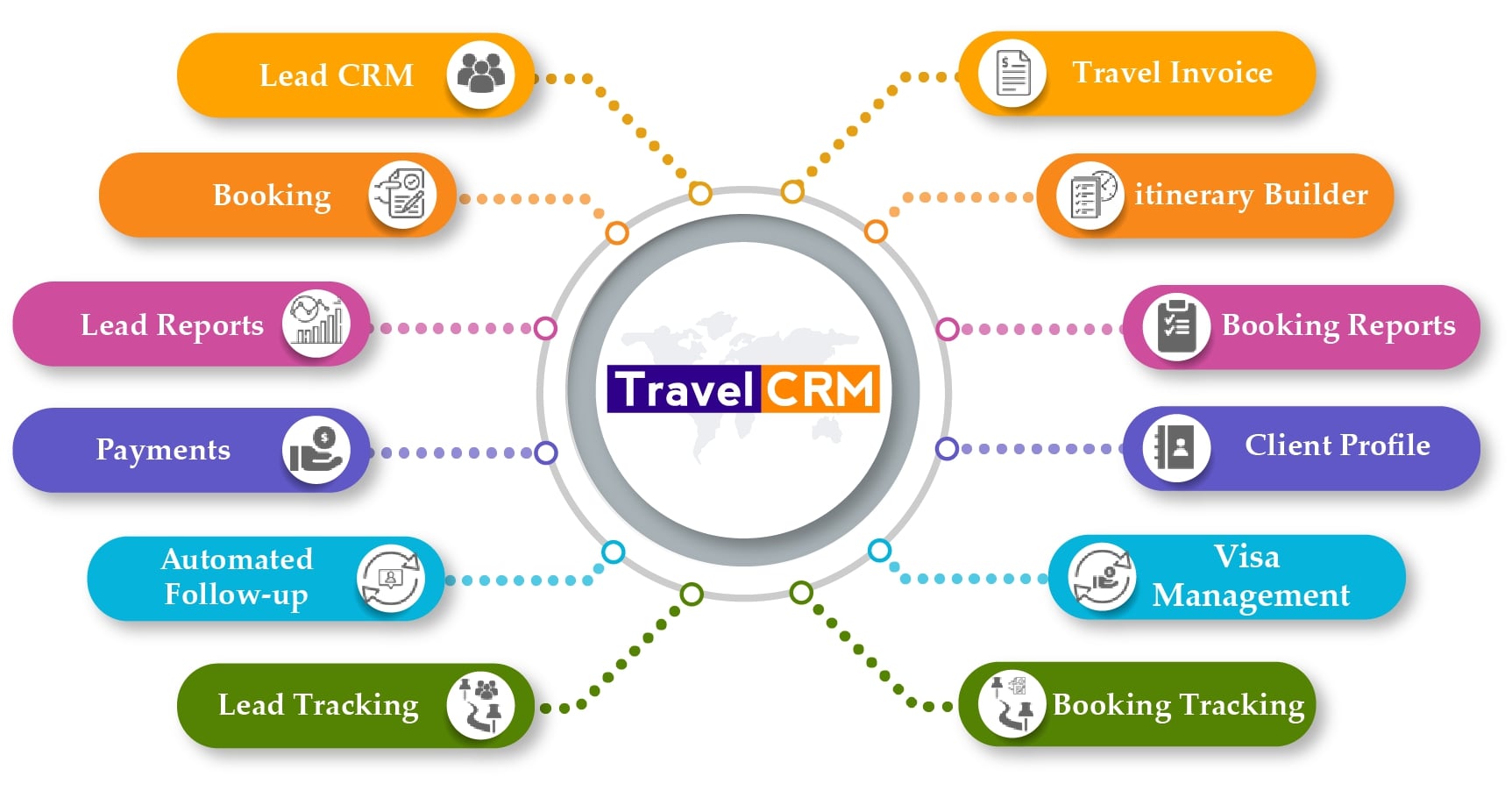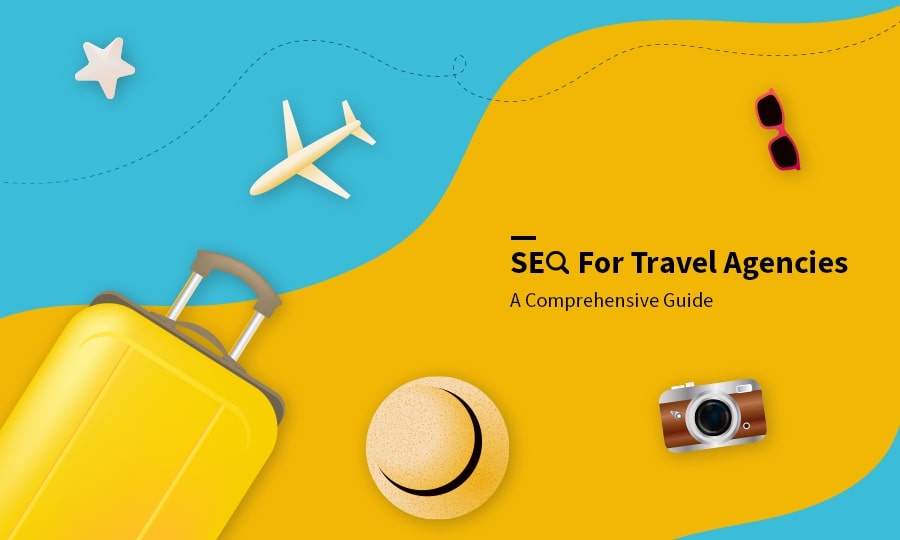
How a B2B Travel CRM Can Transform Your Business Operations
The travel industry is one of the most competitive and fast-paced industries that will require a business to stay in the forefront to maintain excellent relationships with clients, maximize operational efficiency, and ensure maximum profitability. There are several ways a business can stay at the forefront; one of the best is by implementing a B2B travel CRM system. A B2B travel CRM is a highly efficient and powerful tool that simplifies and streamlines interactions between travel companies and their business clients so that agencies are able to effectively manage relationships, processes, and data.
In this blog, we are going to get in-depth as to how B2B Travel CRM will change your business operations, making you win at the game in the travel industry.
What is B2B Travel CRM?
A B2B travel CRM should track and analyze the contact between firms that offer travel businesses and corporate travel agencies or suppliers with tour operators and their travel consultants. As a matter of fact, classical CRM refers to the customer contact in B2C as opposed to the B2B Travel CRM, which responds to its commercial client's special needs within the field of the tourism business.
This system has all the tools and devices to handle the lead, monitor bookings, and store client data in an automated process—all in one central point.
1. Client Management Facilitation
A B2B travel CRM will basically alter the nature of your business operations mainly through efficient client management. Travel companies often have multiple clients with varying requirements, needs, and preferences. While this kind of information is painstaking to track manually, even the most disjointed tools being used today can make it vulnerable to error.
B2B Travel CRM aggregates all information of the clients in one central place, making it easy for your team to interact with the client. All the preferences, booking history, payment details, and communication history are available in a single system, making your team able to access the information and update it in real-time so that errors can be avoided and correct and personalized servicing is allowed to the client.
2. Effective Communication and Collaboration:
Good communication is effective in every business, especially in the travel industry, where timely information really forms the basis of excellent service. A B2B travel CRM helps improve communication and collaboration both within your own team and with clients.
Internally, the CRM can be used to share important client information and updates across different departments so that everyone is on the same page. This can be especially useful in a scenario where multiple teams have to service one client: the sales, support, and operations teams, for example.
It really makes it easier to communicate with business clients; you can send some personally composed emails, reminders, or even updates from the CRM—actually sending a message relevant for that moment. These save a chance for some vital information being missed, such as not forgotten.
3. Automating Efficiency
Several automation features are found in B2B travel CRMs, and the above can highly enhance efficiency. This automation of tasks such as follow-up emails, booking confirmations, and reminders frees your team's time to be used for other more value-added activities, such as relationship building and delivering personal travel experiences to clients.
For instance, automated workflows can send automatic booking confirmations when a client has booked or reminders to clients regarding their trips or renewals. This saves manual effort while still getting the information across to the clients at the right time, thereby improving customer satisfaction.
Automation also means there are no missed deadlines on any important tasks, so the operations are smoother.
4. Enhancing Customer Retention
Customer retention will always be at the forefront for any business, especially a travel business where clients usually return or need continuous servicing. Through this B2B Travel CRM, you can track every client's history as well as the preferences and specific needs for improvement of customer retention.
By making such an analysis, you can customize service offerings to each client based on the client's preference. For example, if most of the time, the client booked luxury hotel accommodations or had some special travel arrangements, then your CRM will remind you to provide them those options when the client wants to book again.
It further facilitates a targeted promotion, loyalty reward, or special offer to a client so that repeat business and client loyalty are further provoked.
5. Data-Driven Insights for Better Decision-Making
A B2B travel CRM offers valuable data-driven insights that can help you make informed decisions. The CRM gathers and stores data about the behavior of clients, their booking patterns, revenue generation, and many more. By analyzing this data, one can identify trends, understand the needs of clients, and spot areas for improvement.
For example, the CRM may identify which clients are more likely to book travel packages of certain types or at which times of the year there is more business. Such information may further empower you to run targeted marketing campaigns, adjust pricing strategies, and tailor what you are offering according to your clients' demands.
Having a better view of how the business is performing can also give you strategic decision-making opportunities to drive growth and profitability.
6. Simplified Sales and Lead Management
A B2B travel CRM plays a key role in streamlining sales and lead management processes. This way, a business can track leads efficiently and ensure that no potential sales opportunity is lost. It lets you manage your sales pipeline, set follow-up reminders, and automatically assign leads to sales representatives.
This will also help divide leads by different criteria like location, budget, or preferences in traveling, and hence the sales team can target more potential clients with higher priority. Tracking the interactions with the clients can further help sales teams to better understand which stage of the sales funnel every lead is at and, hence, to apply more personalized and effective sales strategies.
7. Reporting and Analytics
A B2B travel CRM offers you solid reporting and analytics tools to enable you to track your key performance indicators and understand your business operations. Whether it is sales performance or customer satisfaction, the CRM provides reports giving you a clear perception of how your business operations have been.
It allows businesses to identify areas in which it is performing and areas requiring improvements. For example, if CRM reports point to particular clients as uninterested in one's offerings, then its marketing or sales techniques can be modified to respond accordingly.
8. Better Third-Party Integration
Most of the B2B travel CRMs can easily interface with other software tools commonly used in the travel business. This helps to ensure a smooth flow of data, thus minimizing manual and repetitive entry into various applications, thereby minimizing error incidences.
For example, when a client makes a booking, the CRM may update the booking system and set off the relevant action, like sending confirmation emails or generating invoices. This integration further smoothens business operations, saves time, and reduces mistakes.
Conclusion
A B2B travel CRM can be really transformative in business operations if streamlined client management, better communication, improved customer retention, and better insight for making decisions are to be considered. Such a tool will help travel businesses automate otherwise mundane tasks, manage leads efficiently, and integrate well with other necessary tools while offering a personalized experience to the clients.
A B2B travel CRM can be beneficial to your business for improved efficiency, reduced cost of operation, and setting long-term relationships with the clients. Leverage of power from a CRM system might prove the survival of travel industries within the competitive environment of the travel business.
Related Blog
Understanding the Importance of SEO for Online Travel Agencies
The travel industry demands staying competitive; a B2B travel CRM helps streamline client interactions, manage data, and boost efficiency and profitability.

 Start your Travel Business with Our 7 Day Free Trial Website!
Start your Travel Business with Our 7 Day Free Trial Website!





